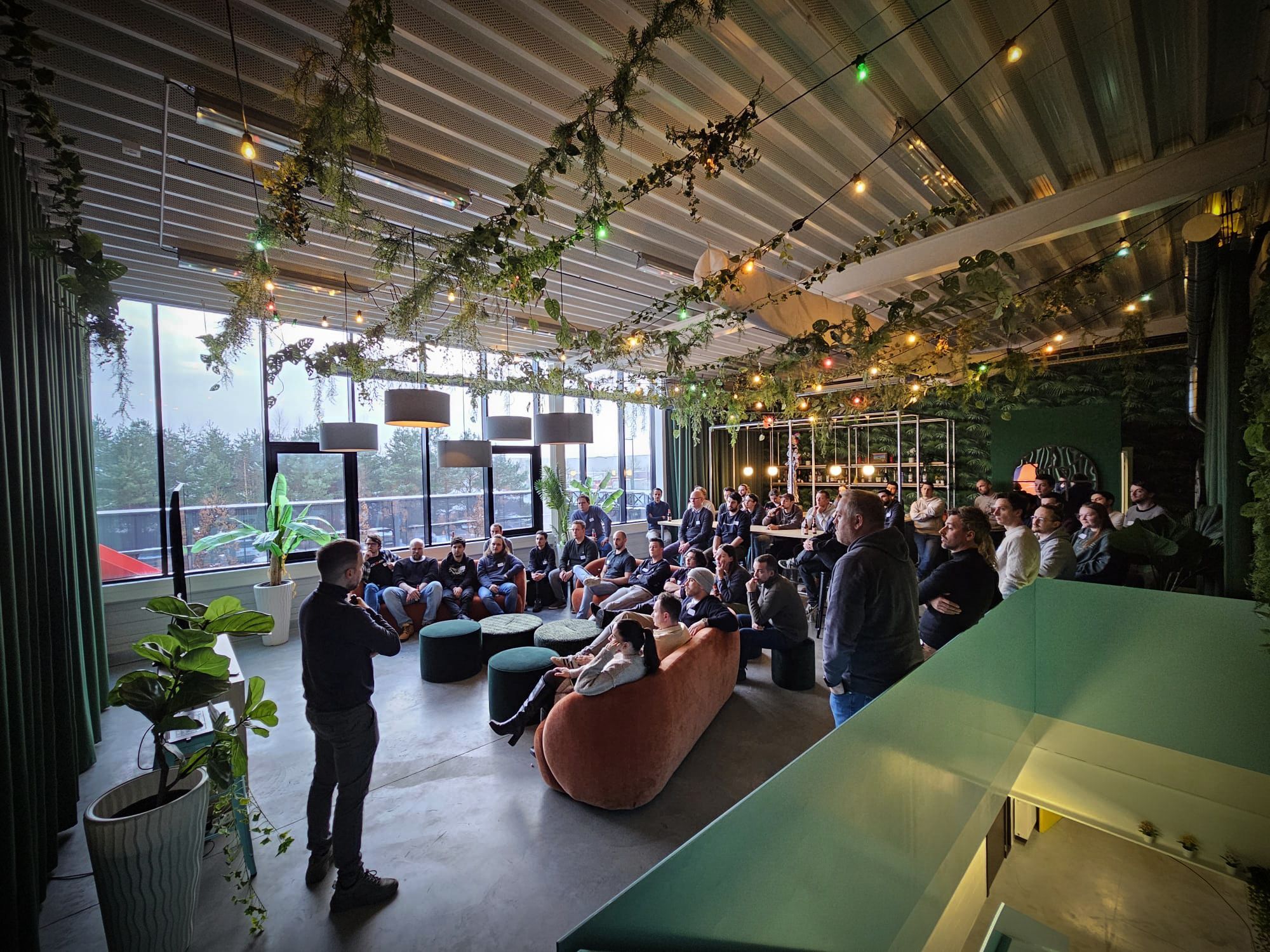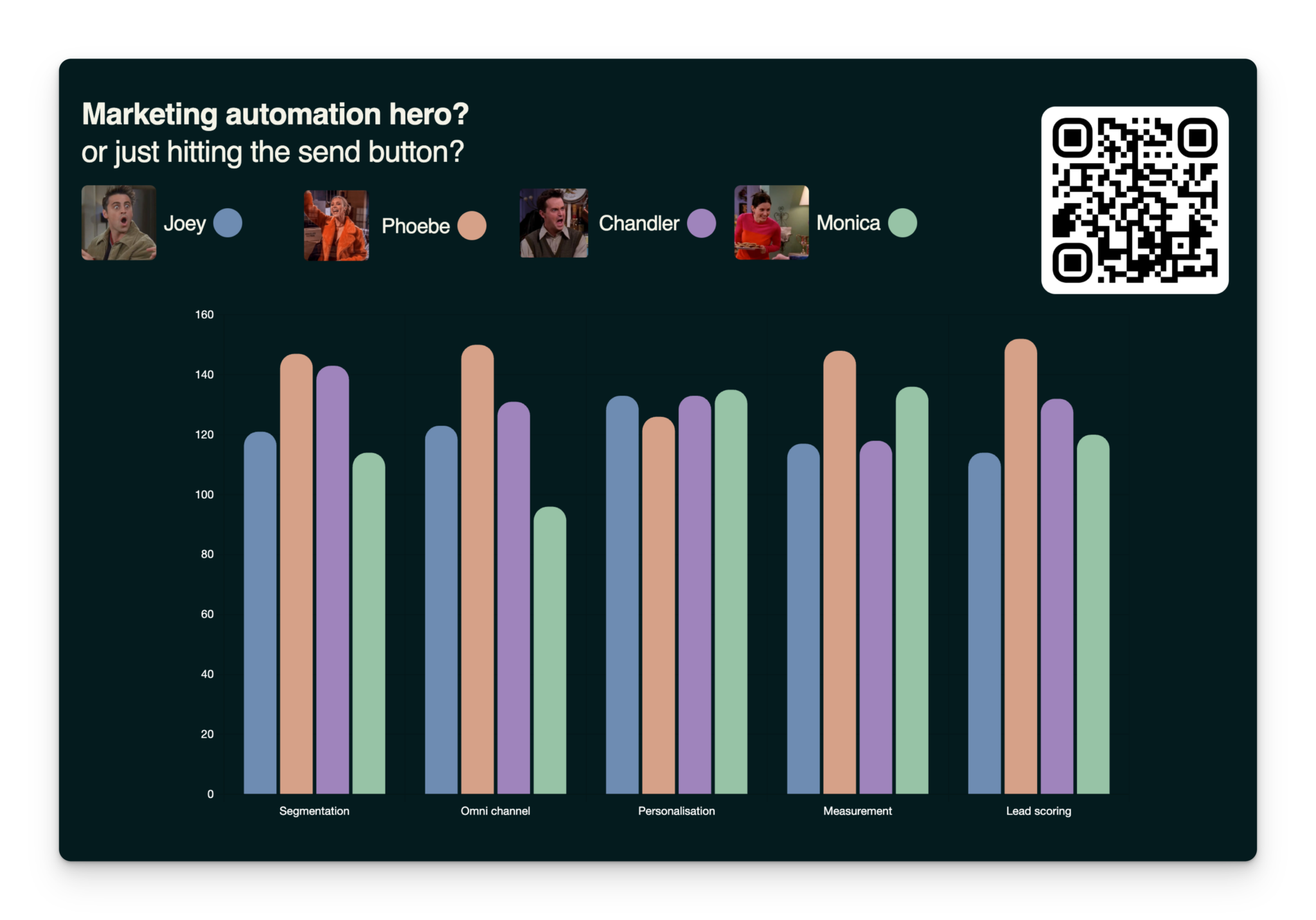Node.js Backend Development Experts in Belgium
Dignify
26 August 2024

7 min read
Table of contents
- Understanding Node.js Backend Development
- Key Features of Node.js in Backend Development
- Why Node.js is Preferred for Backend Development
- The Role of Node.js Backend Developers
- Responsibilities of a Node.js Backend Developer
- Skills Required for a Node.js Backend Developer
- Hiring Node.js Backend Development Experts in Belgium
- What to Look for When Hiring a Node.js Developer
- Future of Node.js Backend Development in Belgium
- Trends in Node.js Backend Development
In recent years, Node.js has emerged as a powerful and efficient platform for backend development. This server-side JavaScript runtime environment has gained popularity among developers due to its lightweight nature, event-driven architecture, and scalability. In Belgium, Node.js has become a go-to choice for businesses looking to build robust and high-performance web applications.
Explore our Martech Solutions
Understanding Node.js Backend Development
Before diving into the world of Node.js backend development, it is essential to grasp the key features that make this platform a preferred choice. Node.js allows developers to write server-side code in JavaScript, which eliminates the need for a separate front-end and back-end language. This not only streamlines the development process but also promotes code reuse and improves productivity.
Additionally, Node.js employs a non-blocking, event-driven architecture that enables concurrent processing of multiple requests. This asynchronous I/O model ensures high performance and scalability, making it ideal for applications that handle a large number of simultaneous connections.
Key Features of Node.js in Backend Development
The key features of Node.js that make it a top-notch choice for backend development include:
- Simplicity: The simplicity of JavaScript as a programming language makes it easy for developers to learn and work with Node.js.
- Fast Execution: Node.js offers excellent runtime speed due to its event-driven, non-blocking architecture.
- Scalability: Node.js allows applications to handle a massive number of concurrent connections, making it highly scalable.
- Large Ecosystem: Node.js boasts a vast ecosystem of open-source libraries and frameworks that facilitate rapid development.
Why Node.js is Preferred for Backend Development
Node.js has gained immense popularity among developers and businesses for several reasons:
- Increased Productivity: By allowing developers to write both front-end and back-end code in JavaScript, Node.js reduces the learning curve and promotes faster development cycles.
- Seamless Communication: Node.js enables real-time communication between the client and server, making it an excellent choice for applications that require instant updates.
- Performance Optimization: Node.js leverages a non-blocking, event-driven architecture that maximizes performance and minimizes response time.
- Cost-Effectiveness: Node.js allows for efficient resource utilization, reducing infrastructure costs and providing a cost-effective solution for businesses.
But what sets Node.js apart from other backend development platforms? One of the standout features of Node.js is its ability to handle data-intensive applications with ease. Whether it’s real-time chat applications, streaming services, or social media platforms, Node.js excels in managing large volumes of data and delivering it to users in a fast and efficient manner.
Furthermore, Node.js offers seamless integration with various databases, allowing developers to choose the most suitable option for their specific needs. Whether it’s MongoDB, MySQL, or PostgreSQL, Node.js provides robust support and easy integration, making it a versatile choice for backend development.
The Role of Node.js Backend Developers
Node.js backend developers play a crucial role in building robust and scalable web applications. They are responsible for developing server-side logic, connecting the application with the underlying databases, and implementing efficient APIs. Let’s dive deeper into the responsibilities and skills required for this role.
Responsibilities of a Node.js Backend Developer
A Node.js backend developer’s primary responsibilities include:
- Designing, developing, and maintaining server-side logic using Node.js and related frameworks.
- Integrating the application with databases and external services.
- Building RESTful APIs for seamless communication between the client and server.
- Ensuring the application’s performance, scalability, and security.
- Troubleshooting and debugging issues in collaboration with the front-end development team.
- Participating in code reviews and contributing to the overall architectural decisions.
As a Node.js backend developer, you will be the backbone of the application, responsible for handling the server-side operations that power the entire system. Your expertise in Node.js and related frameworks will enable you to design and develop efficient server-side logic that meets the application’s requirements. By integrating the application with databases and external services, you will ensure seamless data storage and retrieval, as well as the smooth functioning of any third-party integrations.
Building RESTful APIs is another critical aspect of your role. These APIs will serve as the communication bridge between the client and server, allowing for the exchange of data and requests. Your ability to design and implement well-structured APIs will contribute to the overall user experience and performance of the application.

Skills Required for a Node.js Backend Developer
To excel in Node.js backend development, developers need to possess a mix of technical and interpersonal skills:
- Proficiency in Node.js: In-depth knowledge of Node.js and its associated frameworks like Express.js is essential. Your understanding of event-driven, non-blocking I/O will enable you to build high-performance applications.
- Database Management: Familiarity with databases like MongoDB, MySQL, or PostgreSQL for efficient data storage and retrieval. Your expertise in database management will ensure the application’s ability to handle large amounts of data and perform complex queries.
- API Development: Experience in building RESTful APIs and integrating with third-party services using technologies like JSON and XML. Your knowledge of API development will enable seamless integration with external systems, expanding the application’s capabilities.
- Version Control Systems: Proficiency in using Git or other version control systems for code management and collaboration. Your ability to effectively use version control systems will facilitate seamless collaboration with other developers and ensure efficient code management.
- Problem-Solving: Strong analytical and problem-solving skills to troubleshoot and debug complex issues. Your ability to analyze and identify the root cause of problems will contribute to the stability and reliability of the application.
- Communication: Effective communication skills to collaborate with cross-functional teams and clients. Your ability to communicate clearly and concisely will facilitate smooth collaboration and ensure that the development process aligns with the project’s goals.
As a Node.js backend developer, your skills and responsibilities go beyond writing code. You are an integral part of the development team, contributing to architectural decisions and participating in code reviews. Your attention to detail and commitment to delivering high-quality code will play a crucial role in the success of the web application.
Hiring Node.js Backend Development Experts in Belgium
What to Look for When Hiring a Node.js Developer
When hiring a Node.js developer in Belgium, consider the following factors:
- Experience: Look for developers with a proven track record in Node.js backend development and projects of similar complexity.
- Technical Proficiency: Assess their proficiency in Node.js, related frameworks, and other technologies required for your project.
- Problem-Solving Skills: Evaluate their ability to tackle complex challenges and find efficient solutions.
- Team Player: Collaborative skills are crucial for seamless integration within your development team.
- Communication: Effective communication ensures clear project requirements and smooth coordination.
- Portfolio: Review their past projects to gauge the quality of their work and their ability to deliver.
Future of Node.js Backend Development in Belgium
Looking ahead, the future of Node.js backend development in Belgium appears promising. Let’s explore the trends and opportunities that lie ahead for Node.js developers in the Belgian tech landscape.
Trends in Node.js Backend Development
Node.js backend development is continuously evolving, and several trends are shaping its future:
- Microservices Architecture: Node.js is well-suited for building microservices architectures, allowing for modular and scalable application development.
- Real-time Applications: The demand for real-time applications that deliver instant updates and seamless communication is on the rise, positioning Node.js as an ideal choice.
- Serverless Computing: The serverless paradigm is gaining popularity, and Node.js is well-positioned to leverage this trend with its lightweight and event-driven architecture.
- Internet of Things (IoT): Node.js’s lightweight footprint and asynchronous nature make it an excellent choice for IoT applications, enabling efficient data processing and communication.
As the leading Node.js backend development experts in Belgium, we at Dignify understand the importance of staying ahead of the curve in this fast-paced tech landscape. With our team of highly skilled Node.js developers, we help businesses unlock the full potential of Node.js for building scalable and innovative web applications. Contact us today to discuss your Node.js development needs.
Do you want relevant content delivered to your inbox?
Subscribe to our newsletter and stay up-to-date with the latest news about everything digital.More ideas
Keep on reading
-

29 August 2025
When your chatbot goes from “meh” to medical-grade
Digital Products -

29 August 2025
Meet your new HR assistant (and no, it’s not a person)
Digital Products -

2 July 2025
Press Release: addData fully integrates into Dignify, strengthening data-powered marketing impact
Press Release -

24 March 2025
Marketing Master? or just hitting that send button?
Marketing Automation